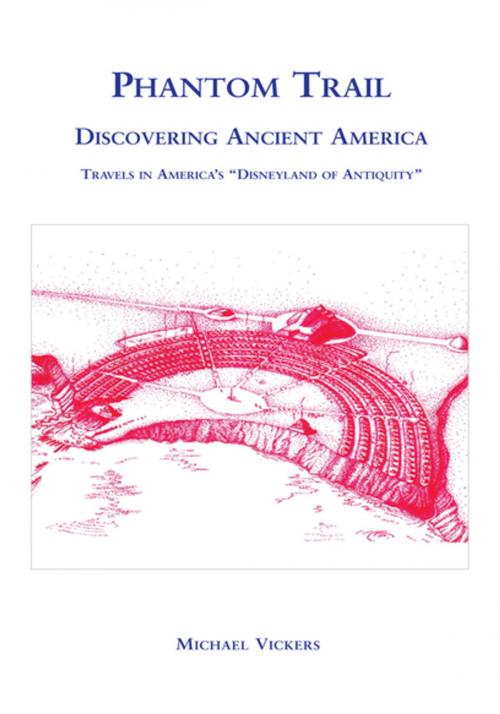Phantom Trail
Discovering Ancient America
Nonfiction, History, Civilization, Travel, Adventure & Literary Travel| Author: | Michael Vickers | ISBN: | 9780595796458 |
| Publisher: | iUniverse | Publication: | April 27, 2005 |
| Imprint: | iUniverse | Language: | English |
| Author: | Michael Vickers |
| ISBN: | 9780595796458 |
| Publisher: | iUniverse |
| Publication: | April 27, 2005 |
| Imprint: | iUniverse |
| Language: | English |
Traveling cross continent, the author explores several prominent, and many virtually "secret" sites of American antiquity. All relate to civilizations and cultures which preceded the arrival of the European-some, by many 1000s of years.
While the focus is on the Great Valley of the Mississippi and the stupendous and mysterious Moundbuilders, the working context is modern America. And it is knowledgeable Americans whom the author encounters along the Trail who provide support and guidance.
In the latter part of the book, attention shifts to the startling land formations of the South-west-the Petrified Forest, Grand Canyon, the High Plains-which tell us much about the intensity of activity on the American continent many millions of years before man, "a very new newcomer," was to make his first appearance.
Phantom Trail creates an alternative portrait of America. It explores deeper themes and reveals identifiable lines of continuity leading up from antiquity to the present day. It suggests that America is not a modern European invention. Indeed to the contrary, it contends that it is those relentless formative forces, the beat of those deep, primeval rhythms which-unrecognized or ignored, as they may currently be-give to America its essential meaning, its presence, and its form.
Traveling cross continent, the author explores several prominent, and many virtually "secret" sites of American antiquity. All relate to civilizations and cultures which preceded the arrival of the European-some, by many 1000s of years.
While the focus is on the Great Valley of the Mississippi and the stupendous and mysterious Moundbuilders, the working context is modern America. And it is knowledgeable Americans whom the author encounters along the Trail who provide support and guidance.
In the latter part of the book, attention shifts to the startling land formations of the South-west-the Petrified Forest, Grand Canyon, the High Plains-which tell us much about the intensity of activity on the American continent many millions of years before man, "a very new newcomer," was to make his first appearance.
Phantom Trail creates an alternative portrait of America. It explores deeper themes and reveals identifiable lines of continuity leading up from antiquity to the present day. It suggests that America is not a modern European invention. Indeed to the contrary, it contends that it is those relentless formative forces, the beat of those deep, primeval rhythms which-unrecognized or ignored, as they may currently be-give to America its essential meaning, its presence, and its form.















